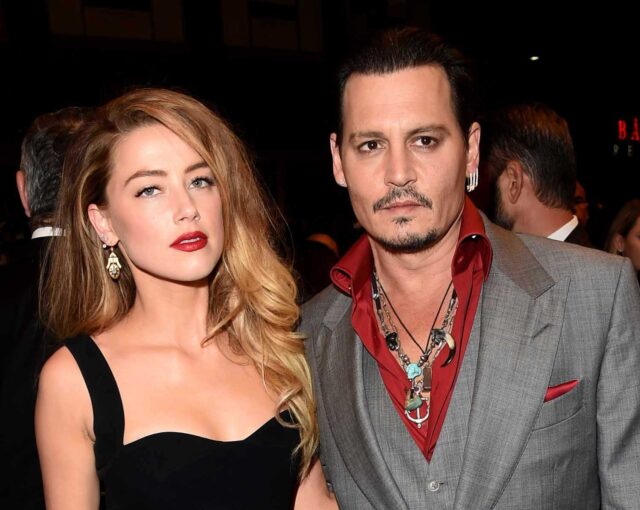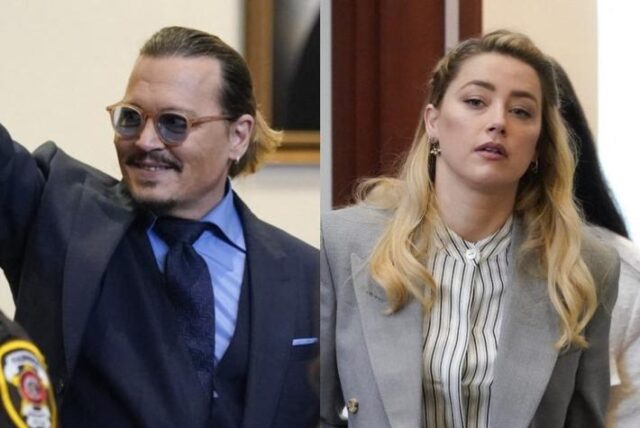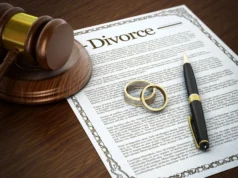
The intersection of celebrity, legal battles, and public scrutiny forms a complex tapestry that often captivates the collective imagination.
At the heart of this intricate interplay lies the saga of Johnny Depp, a narrative that unfolds against the backdrop of high-profile courtrooms, where allegations, defenses, and legal strategies are scrutinized with fervent interest.
This saga not only mirrors the personal tumult of the individuals involved but also serves as a reflection of broader societal themes—privacy, accountability, and the very nature of truth in the digital age.
In this narrative, the legal confrontations between Johnny Depp and various parties, most notably his ex-wife Amber Heard, transcend their personal dimensions to evoke questions about the role of media in shaping public perception, the legal mechanisms at play in personal disputes turned public, and the impact of celebrity status on justice and public discourse.
These legal battles, fought in the courtrooms of the United Kingdom and the United States, are not mere litigation; they are spectacles that draw in millions, blurring the lines between private disputes and public consumption.
Through this prism, the story of Depp’s legal entanglements provided by Legal Finders offers a unique lens through which to explore the complexities of modern fame, the weight of allegations, and the pursuit of vindication in an era where public opinion often precedes judicial verdicts.
The Libel Case Against The Sun

Johnny Depp’s legal entanglements gained significant public attention with his libel lawsuit against The Sun, a British tabloid, which referred to him as a “wife-beater” in one of their articles.
The case, heard in the High Court of Justice in London, revolved around the allegations made by Depp’s ex-wife, Amber Heard, of domestic abuse during their marriage.
The trial, which took place in 2020, was a spectacle not just for its celebrity context but for the extensive and detailed examination of personal text messages, emails, and testimony from both Depp and Heard, as well as from friends, employees, and associates.
The court, led by Justice Andrew Nicol, found The Sun’s claims to be “substantially true” and dismissed Depp’s libel claim. The verdict was a significant blow to Depp’s public image and career, as it lent judicial credence to the allegations of domestic abuse.
The ruling underscored the complexities involved in libel cases, especially those entangled with accusations of personal misconduct. The verdict also highlighted the high burden of proof required in libel cases, where the defendant (in this case, The Sun) must prove that the contentious statements were, in fact, true.
The Defamation Case Against Amber Heard

Following the libel case in the UK, Depp initiated a defamation lawsuit against Amber Heard in the United States, centered on an op-ed she wrote for The Washington Post in 2018, in which she described herself as a “public figure representing domestic abuse.”
Although Depp was not named in the article, his legal team argued that it was clear Heard was referring to her allegations against him, thus defaming his character and affecting his career.
The trial, held in Fairfax County, Virginia, in 2022, was another media spectacle, live streamed for public viewing. The case delved into the details of their tumultuous relationship, with both parties presenting evidence to support their claims of abuse.
In a significant turn of events, the jury found that Heard had defamed Depp in three statements made in the op-ed and awarded Depp $15 million in damages (later reduced to $10.35 million due to state caps on punitive damages).
Conversely, Heard was also awarded $2 million in damages for her counterclaim regarding a defamatory statement made by one of Depp’s attorneys.
This verdict was seen by many as a vindication for Depp, countering the narrative established by the UK libel case. However, it also sparked a wider conversation about the nature of defamation suits, the evidentiary standards required, and the impact of such public trials on the individuals involved and on broader societal issues such as domestic abuse and freedom of speech.
Legal and Societal Implications

The Johnny Depp legal saga offers a rich case study in the intersection of celebrity, media, and the law. The intense public and media scrutiny of these cases has raised questions about privacy rights, the responsibility of the media in reporting on allegations of personal misconduct, and the potential for legal systems to be used as battlegrounds for public relations wars.
Moreover, these cases have contributed to the ongoing discourse around domestic abuse, highlighting the difficulties in adjudicating such deeply personal and often complex situations in the public eye.
The divergent outcomes of the UK and US cases also underscore the differences in legal standards and processes between jurisdictions, particularly in matters of libel and defamation.
Johnny Depp’s legal battles have unfolded like a high-stakes drama, capturing the world’s attention and sparking debates on a range of legal and ethical issues.
While Depp’s career and public image have undoubtedly been impacted, the cases have also left an indelible mark on the legal landscape, particularly in how celebrity cases are tried and the role of the media in shaping public perception of legal disputes.
As the dust settles, the legal community and society at large continue to grapple with the complex interplay of justice, celebrity, and the media, making the Johnny Depp case a reference point for future legal battles in the public eye.













